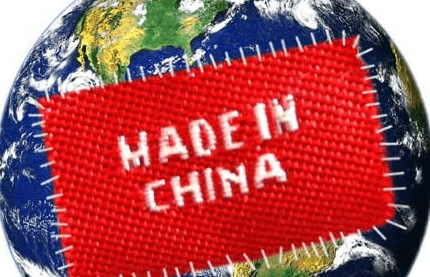China unfreezes remainder of $3b loan to Ghana – Bawumia
 The Vice President, Dr. Mahamudu Bawumia says China has unfrozen the remainder of the $3 billion loan facility meant for Ghana, since 2010.
The Vice President, Dr. Mahamudu Bawumia says China has unfrozen the remainder of the $3 billion loan facility meant for Ghana, since 2010.
Dr. Bawumia was cited in a news report by the GNA saying after a visit to China that the Ghanaian delegation that he led was successful at renegotiating the reactivation of the remainder of the entire $3 billion master facility that was given to Ghana under the previous administration.
$1 billion was disbursed for the Atuabo gas plant but the remaining $2 billion was frozen for certain reasons and “we were able to successfully address some of the concerns and they agreed to unfreeze that amount,” he was quoted as saying.
The China Exim Bank also made a commitment to release $1 billion to support Ghana’s infrastructure, the Vice President said.
“We have come home and we are going to prioritize those infrastructures that would be financed by the MoU; there are many priorities and we would see which projects would go under the MoU,” he added.
The Late President John Atta Mills went to China on a visit in September 2010, and during the visit, he signed a framework agreement for the $3 billion loan facility with the China Development Bank (CBD).
But with time, the facts surrounding the loan became unclear. Different stories were told about the loan that didn’t tell a straight forward story. Subsequently, the expected loan was made a major part of the country’s budgetary projections.
The loan facility which at that time was the biggest that the country has ever negotiated was in two tranches of $1.5 billion each, with different terms.
The first tranche had a five year grace period, 15 years re-payment period; a commitment fee of one per cent flat, an interest rate of 2.95 per cent and six months LIBOR (London Inter-Bank Offer Rate) and an upfront fee of 0.25 per cent flat.
The second tranche of $1.5 billion had a grace period of five years, 10 years tenure interest rate of 2.285 cent and six months LIBOR, 0.25 per cent upfront fees per annum and a commitment fee of per cent per annum.
The country’s Parliament approved the loan on Friday August 26, 2011, after debates, some of which were acrimonious, with the opposition, which is now the governing party, boycotting.
By Emmanuel K. Dogbevi
Copyright ©2017 by Creative Imaginations Publicity
All rights reserved. This news item or any portion thereof may not be reproduced or used in any manner whatsoever without the express written permission of the publisher except for the use of brief quotations in reviews.
